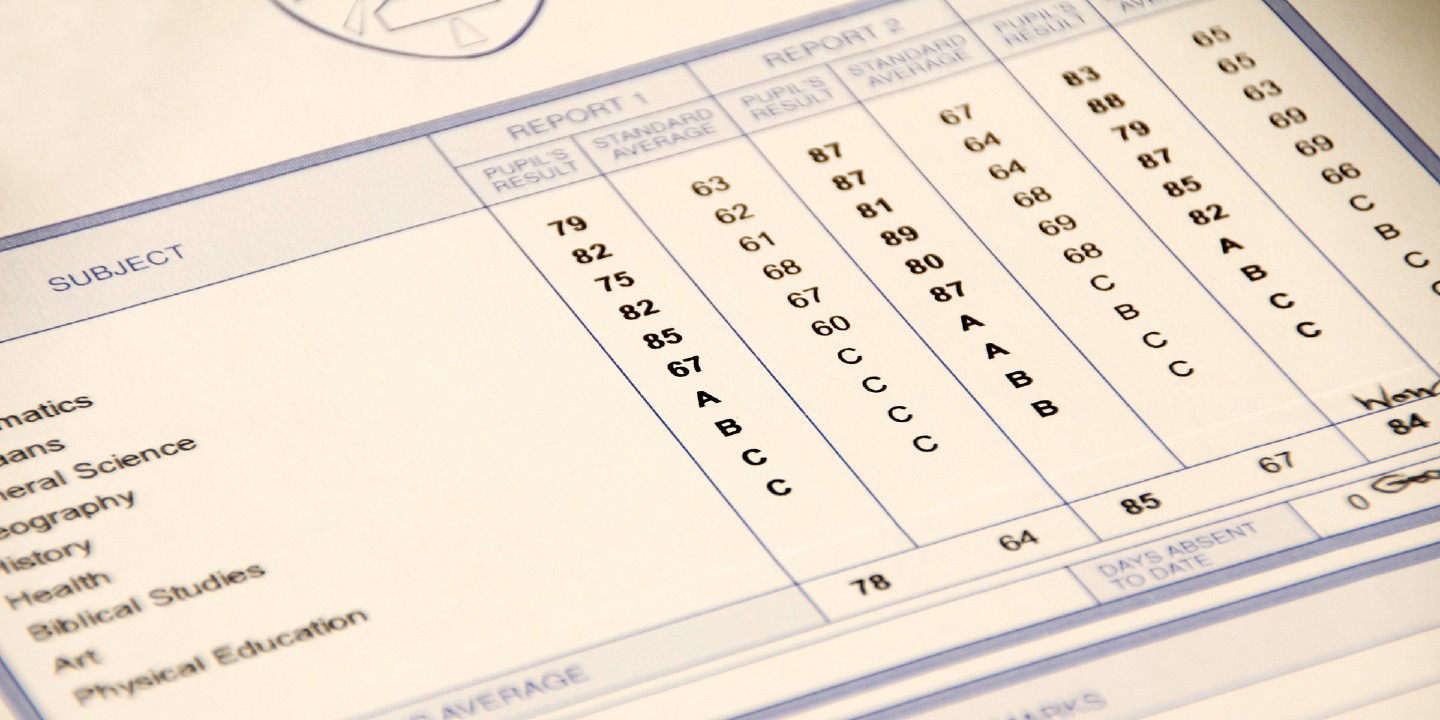
Grades leave parents in the dark
Research 20 Apr 2021 4 minute readACER Chief Executive Professor Geoff Masters AO says parents deserve better information about their children’s learning than the grades they receive.
Research into the effectiveness of activities related to communicating student learning progress conducted by ACER between 2016 and 2019 revealed that, with few exceptions, Australian schools tend only to report student achievement using A to E grades or similar.
In a new article published in Teacher, Professor Masters says grades are poor indicators of where students are in their long-term learning progress because they are always specific to a particular piece of work or course of learning.
‘Grades indicate a level of success on year-level learning expectations, leaving parents to infer that their children are generally on track and ready for the next year’s curriculum,’ Professor Masters writes.
Professor Masters cites research from the United States that found school reports lead 90 per cent of parents to believe their child is on track in their learning. Yet only 39 per cent of teachers say students begin each school year ready for the year’s curriculum. And according to the US National Assessment of Educational Progress, just 37 per cent of students are performing at or above year-level expectations.
‘If parents are to be effective partners in their children’s learning, they require accurate and usable information about the stages individuals have reached in their learning, and about the kinds of stretch challenges likely to promote further growth. By themselves, grades provide neither,’ Professor Masters writes.
According to Professor Masters, a more useful report would:
- provide an accurate indication of the level of attainment a student has reached in an area of learning, regardless of their age or year level
- describe and illustrate what students at this level typically know, understand and can do
- indicate how this level of attainment compares with common age-based or year-level expectations
- make suggestions for appropriate next steps in each student’s learning and what parents might do to assist
- allow parents to see and students to appreciate the progress made in an area of learning over an extended period of time.
ACER’s communicating student learning progress research project also recommended that school reporting systems should be continuous and accommodate the naturally different cycles of teaching, learning and assessment of different subjects and courses rather than scheduled according to an inherited, traditional end-of-semester reporting cycle. ■
Read the full article:
‘How well do grades convey attainment and progress?’, by Professor Geoff Masters AO, is published in Teacher.